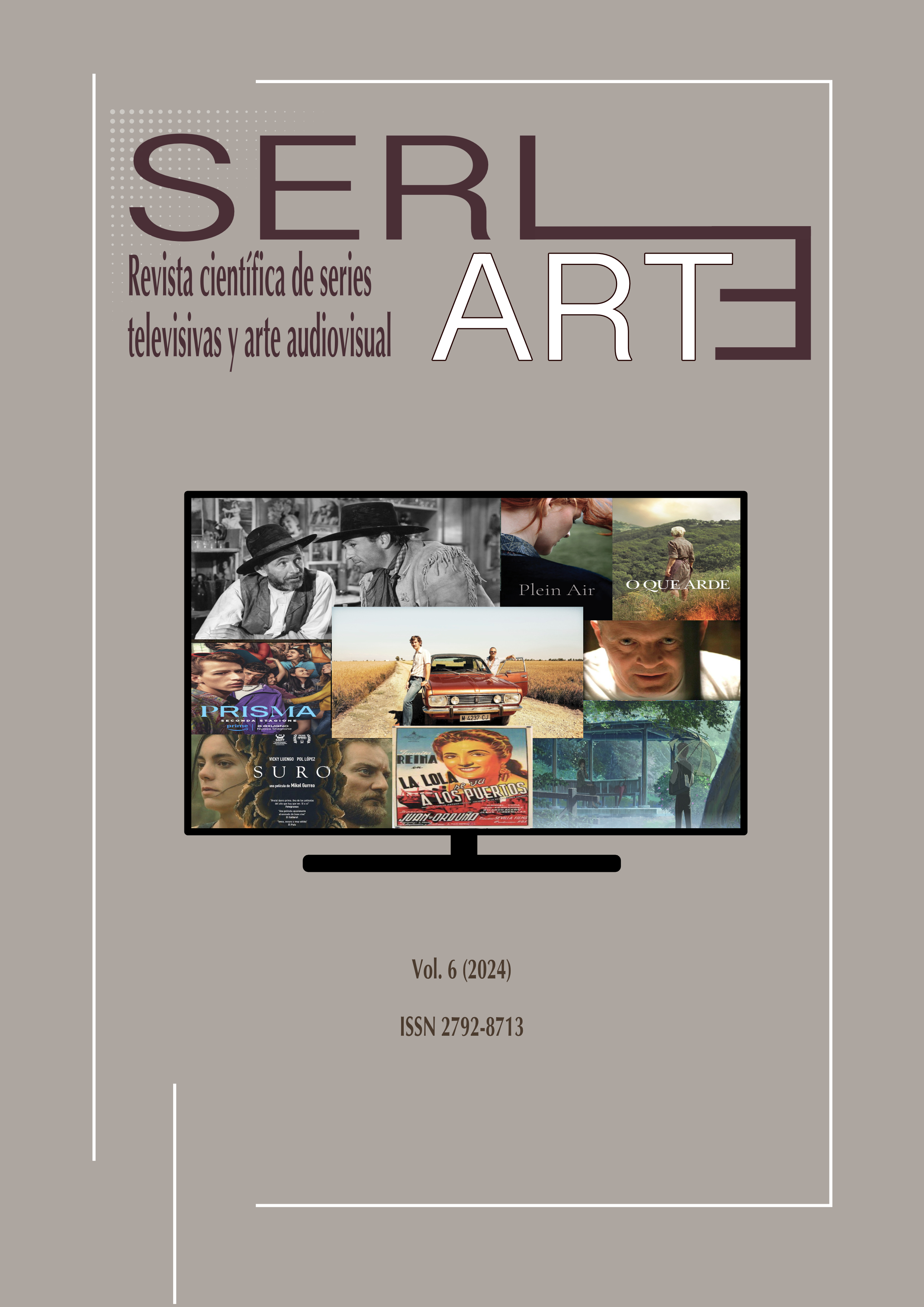Redemption and catharsis in rural nature: the return to countryside in La tierra y la sombra (César Acevedo, 2015) y Lo que arde (Oliver Laxe, 2019)
Main Article Content
Abstract
Lo que arde (Oliver Laxe, 2019) and La tierra y la sombra (César Acevedo, 2015) combine a reflection on the rural cosmos as a territory to return in search of redemption and catharsis. Rural nature is erected in the works as a sovereign space to which the protagonists submit themselves peacefully or from which they try to survive its mysterious force. Using some of the postulates of filmmaker Andrei Tarkovski, an author who always attached particular importance to the bond with the land and its roots, the aim is to analyze, in addition to their diegetic, extradiegetic and metaphoric correspondences, the way in which the aesthetics of these two films allow a transcendence of the strong symbolism of their images, freeing them from any imposed meaning. The purpose is then to reflect on how the rural imaginary acquires an aesthetic whose result resembles a poetic experience where destruction would be synonymous with liberation.
Downloads
Publication Facts
Reviewer profiles N/A
Author statements
Indexed in
- Publisher
- Ucopress. Cordoba University Press
Article Details

This work is licensed under a Creative Commons Attribution-NonCommercial-NoDerivatives 4.0 International License.
References
BARRUCAND, Dominique (1970),«Catharsis et psychodrame», Bulletin de psychologie, vol. 23, n.° 285, pp. 736 739. DOI 10.3406/bupsy.1970.10151 DOI: https://doi.org/10.3406/bupsy.1970.10151
BIRÓ, Yvette (2007), Le temps au cinéma. Le calme et la tempête, Lyon: Aléas.
CASETTI, Francesco (2005), Les théories du cinéma depuis 1945, Paris: Armand Colin.
CHATMAN, Seymour (1978), Story and discourse. Narrative structure in fiction and film. New York: Cornell University Press.
CHION, Michel (2019), La musique au cinéma. Paris: Fayard.
DE LUCA, Tiago (2016), «Natural views: Animals, contingency and death in Carlos Reygada’s Japón and Lisando Alonso’s Los muertos», Slow Cinema, Edinburgh: Edinburgh University Press, pp. 219 230. DOI: https://doi.org/10.1515/9780748696031-021
FERNÁNDEZ, Ricardo, «Entrevista a Oliver Laxe», en: https://elcontraplano.com/2019/10/29/oliver-laxe-en-o-que-arde-no-hay-concesiones-hay-generosidad/ (fecha de consulta: 10-10-2023).
GARDIES, André (1993), L’espace au cinéma, Paris: Méridiens Klincksieck.
GAUDREAULT, André y JOST, François (2017), Le récit cinématographique, París: Armand Colin.
GENETTE, Gerard (2019), Figures III. París: Points.
GOVERNATORI, Luca (2002), Andreï Tarkovski : l’art et la pensée, París: L’Harmattan.
MARX, William (2011), «La véritable catharsis aristotélicienne: Pour une lecture philologique et physiologique de la Poétique», Poétique, vol. 166, n.° 2, pp. 131 154. DOI 10.3917/poeti.166.0131. DOI: https://doi.org/10.3917/poeti.166.0131
MONTERDE, José Enrique (2010), «Lo rural como espacio metafórico», en GÓMEZ, Agustín, POYATO, Pedro (coords.), Profundidad de campo: más de un siglo de cine rural en España, Girona: Luces de Gálibo, pp. 159-176.
PELÁEZ, Isabel, «César Acevedo, el caleño que ganó en Cannes, ya piensa en su próxima película», en: https://www.elpais.com.co/cali/cesar-acevedo-el-caleno-que-gano-en-cannes-ya-piensa-en-su-proxima-pelicula.html (fecha de consulta: 10-10-2023).
PINEDA, Gloria (2018), «Le renouveau du cinéma colombien à Cali. L’esthétique du cinéma d’auteur soutenue par la France», Cinémas d’Amérique latine, n.° 26, pp. 130 141. DOI 10.4000/cinelatino.4457. DOI: https://doi.org/10.4000/cinelatino.4457
SCHRADER, Paul (2022), Le style transcendantal au cinéma, Circé. Penser le cinéma.
TARKOVSKI, Andrei (2013), Esculpir el tiempo, México: Centro Universitario de Estudios Cinematográficos.
VIVÈS, Jean-Michel (2010), «La catharsis, d’Aristote à Lacan en passant par Freud: Une approche théâtrale des enjeux éthiques de la psychanalyse», Recherches en psychanalyse, vol. 9, n.° 1, pp. 22 35. DOI 10.3917/rep.009.0022. DOI: https://doi.org/10.3917/rep.009.0022






